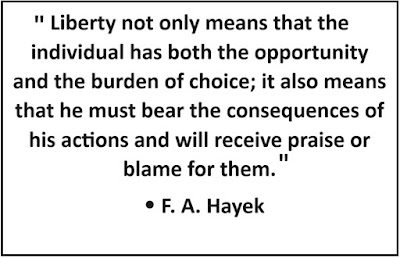This essay focuses mainly on the discourse ethics of Jürgen Habermas.
Habermas, who will be 95 years old tomorrow, developed a theory
of communicative rationality based on the argument that all speech has an
inherent goal of mutual understanding and that humans possess the communicative
competence to bring about such understanding.
Habermas is a public intellectual, but I haven’t followed his
contributions to discussion of topical issues closely enough to judge whether they
exemplify the discourse ethics that he advocates. My main reason for interest in
Habermas’s discourse ethics is the apparent influence he has had on other
philosophers, including Hilary Putnam and Amartya Sen.
In this essay I briefly outline the principles of Habermas’s discourse
ethics, the ideological background and motive for his focus on communication, and similarities
and differences between his communication ethics and those of Michael Polanyi
and Ayn Rand, before briefly discussing whether his discourse ethics offers a
normative basis to assess ideas about justice.
Principles
Habermas’s two principles of discourse ethics relate to the philosophical
justification of a moral standpoint. The first concerns consensus (or possible
consensus):
Only those norms can claim to be valid that meet (or could meet) with the approval of all in their capacity as participants in a practical discourse.
The second
is a generalizability rule, or principle of universalization:
All affected can accept the consequences and the side effects its general observance can be anticipated to have for the satisfaction of everyone’s interests (and these consequences are preferred to those of known alternative possibilities).
(For references, please see
the entry on Habermas in the Stanford Encyclopedia
of Philosophy.)
Ideological
background and motive
The context in which Habermas developed his ideas about communication has been explained by Chris Sciabarra in Marx, Hayek, and Utopia. Sciabarra explains Habermas’s project as an outgrowth of the Frankfurt school, which “attempted to recapture the dialectical method of Marx, while maintaining a Marxist faith in the human triumph over unintended consequences” (Chapter 7)
Friedrich
Hayek argued that any attempt by an individual or group of individuals to
produce social change would inevitably have unintended consequences. Hayek
argued that achievement of Karl Marx’s historical projection of a communist
utopia would require a different kind of species capable of total knowledge of
the consequences of their actions, rather than humans who are only capable of
partial knowledge.
Sciabarra presents
Habermas’s ideas about communication as a reconstruction of Marx’s project to
focus on empirical conditions under which people could engage in practical,
transformative social action. Habermas’s ideal society is one based on
non-exploitative social relations. He views all social systems as networks of
communicative actions, and argues that the institutions of power depend on and
perpetuate a distorted form of social communication.
Habermas argues
that if people could master ideal speech they would move towards the goals of truth,
freedom and justice. One of the important characteristics of ideal speech is
that the speaker must want to express his intentions truthfully so that the
hearer can believe in (or trust) the utterance of the speaker. Participants
learn to trust one another and share value orientations when speech is free
from deception and other forms of communicative distortion. Habermas suggests that
social consensus will emerge as people achieve communicative competence. (My
intention is to convey the gist of Habermas’s argument without distorting it
but my account has all the limitations of a summary of a summary.)
Comparison
with Polanyi and
Rand
Michael
Polanyi was a polymath whose understanding of the importance of tacit knowledge
was largely endorsed by Hayek. Sciabarra presents a quote from Polanyi which suggests
that his position on communication differs little from that of Habermas. Both
emphasised the importance of trust in communication and the potential for shared
values to emerge from dialogue. However, Sciabarra also notes a crucial
difference between them. While Habermas argued that the tacit component of dialogue
could be fully articulated, Polanyi held that this was not possible.
Habermas
argues that depth hermeneutics, a form of psychoanalysis, could make explicit
the tacit causal connections that take place in an individual’s subconscious, overcoming
blocks to consciousness, and enabling a reintegration to occur. One goal of
this process is intersubjectivity – enabling participants in discussions to
exchange roles with one another in expressing their needs and interests.
Sciabarra discusses the similarity and differences between Ayn Rand’s communication ethics and those of Habermas in Ayn Rand: The Russian Radical. Rand recognized that honesty is an essential component of rational human relations and fully understood the exploitive nature of strategic forms of communication. Rand’s followers emphasize that self-deception is distortive of an individual’s efficacy and communicative competence.
Sciabarra
suggests that an “emphasis on communicative truthfulness, self-awareness, and “de-repression”
is as crucial to the Randian project as it is to Habermasian discourse theory”.
(293) He suggests that “she sustained a belief in a conflict-free society of
individuals united by their common love for the same values” (355). However, Rand’s
values differed from those of Habermas: She “would have vehemently rejected Habermas’s
emphasis on “intersubjectivity” and the social consensus of norms”. (291)
Relevance
to ideas about justice
If we are
seeking to reach agreement with others it seems obvious that we should seek to
understand the basis for their points of view. For example, if a person is
engaged in a discussion with his or her spouse about who should cook dinner, agreement
is more likely if each party understands why the other might or might not want
to cook on a particular day.
In the
example I have just given, both parties have a strong incentive to reach
agreement to enable a harmonious relationship to continue. It is also possible
to think of contexts at a societal level where people have a strong incentive
to reach agreement and are willing to set aside differences in current interests in making collective
decisions. James Buchanan and Gordon Tulloch suggested that when individuals
are considering constitutional rules that they expect to be in place for a long
time, they may be able to set aside current interests because they are
uncertain about what their interests will be in any of the long chain of collective
choices made according to those rules. (The Calculus of Consent) I
wonder if Habermas would approve if the participants in a constitutional convention
agreed to rules protecting individual rights to property ownership.
This brings
me to a fundamental problem with Habermas’s generalizability rule. Douglas
Rasmussen pointed this out. (‘Political legitimacy and discourse ethics’, International
Philosophical Quarterly, March 1992) According to Habermas, the “moral
point of view” requires one to consider the satisfaction of one’s own needs and
interests from an impersonal point of view – from a point of view which treats
the fact that some needs and interests are uniquely yours as being of no
consequence. Rasmussen points out that this so called “moral point of view” is
not compatible with the moral reasoning of real people in real situations:
“One cannot even recognize his own life as his and his own reasoning as his very own if in order to play the moral game one must forgo all special attachments to ends that are uniquely one’s own.” (30)
Rasmussen concludes
by noting that values associated with modernity, including recognition of the
inherent worth of the individual human being, are inconsistent with Habermas’s
“moral view”:
“Such a modern view, then, does not call for theoretical attempts to paper over the real and legitimate differences among the values and projects of individuals by attempting artificially to induce consensus through a generalizability of interests rule or by appealing to the so called “moral point of view”. Rather, it requires that one accept the moral propriety of pluralism and individualism, and from this starting point attempt the difficult task of constructing a theory of justice.” (34)
Conclusions
Jürgen
Habermas has proposed that principles of discourse ethics can provide a normative
basis to assess ideas about justice.
Habermas
developed his principles of discourse ethics while reconstructing Marx’s
project. He envisaged that the potential for “ideal speech” could enable a
social consensus to emerge for movement towards the goals of truth, freedom, and
justice.
Habermas’s
discourse ethics is similar in some respects to the views of communication
ethics advocated by Michael Polanyi and Ayn Rand. However, unlike Polanyi,
Habermas argued that the tacit component of dialogue could be fully
articulated. Unlike Rand, Habermas argued for intersubjectivity, which amounts
to adoption of an impersonal point of view.
There is a fundamental problem in applying Habermas’s principles of discourse ethics to assess ideas about justice. Habermas’s generalizability rule seeks to artificially induce consensus by papering over legitimate differences among values held by individuals.
Addendum
Readers may also be interested in Chris Sciabarra's discussion of possible libertarian applications of Habermas's view in a section on "Dialogical Models" in libertarian thought, in Chapter 9 of "Total Freedom". That section surveys various thinkers in Austrian and libertarian traditions.













